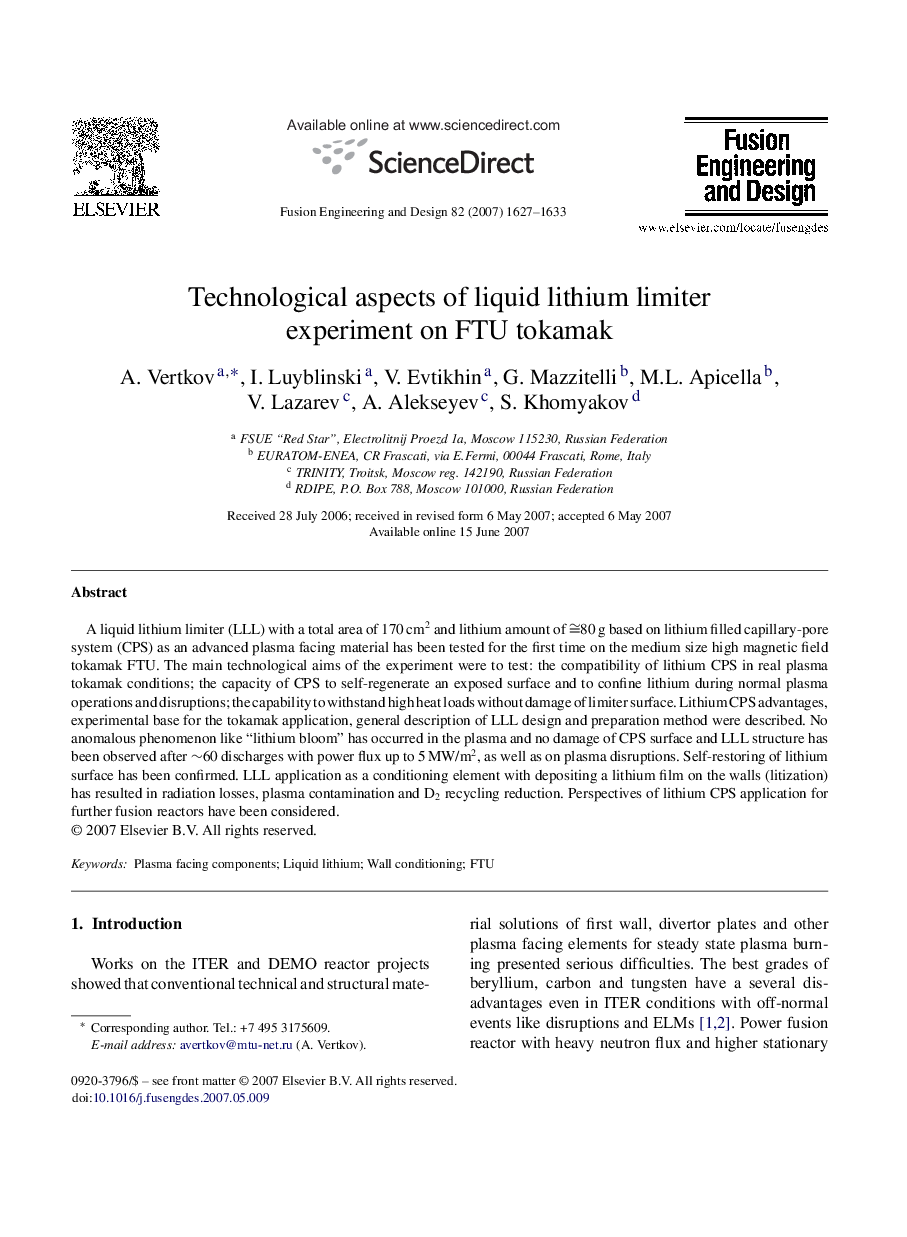| Article ID | Journal | Published Year | Pages | File Type |
|---|---|---|---|---|
| 273542 | Fusion Engineering and Design | 2007 | 7 Pages |
A liquid lithium limiter (LLL) with a total area of 170 cm2 and lithium amount of ≅80 g based on lithium filled capillary-pore system (CPS) as an advanced plasma facing material has been tested for the first time on the medium size high magnetic field tokamak FTU. The main technological aims of the experiment were to test: the compatibility of lithium CPS in real plasma tokamak conditions; the capacity of CPS to self-regenerate an exposed surface and to confine lithium during normal plasma operations and disruptions; the capability to withstand high heat loads without damage of limiter surface. Lithium CPS advantages, experimental base for the tokamak application, general description of LLL design and preparation method were described. No anomalous phenomenon like “lithium bloom” has occurred in the plasma and no damage of CPS surface and LLL structure has been observed after ∼60 discharges with power flux up to 5 MW/m2, as well as on plasma disruptions. Self-restoring of lithium surface has been confirmed. LLL application as a conditioning element with depositing a lithium film on the walls (litization) has resulted in radiation losses, plasma contamination and D2 recycling reduction. Perspectives of lithium CPS application for further fusion reactors have been considered.
